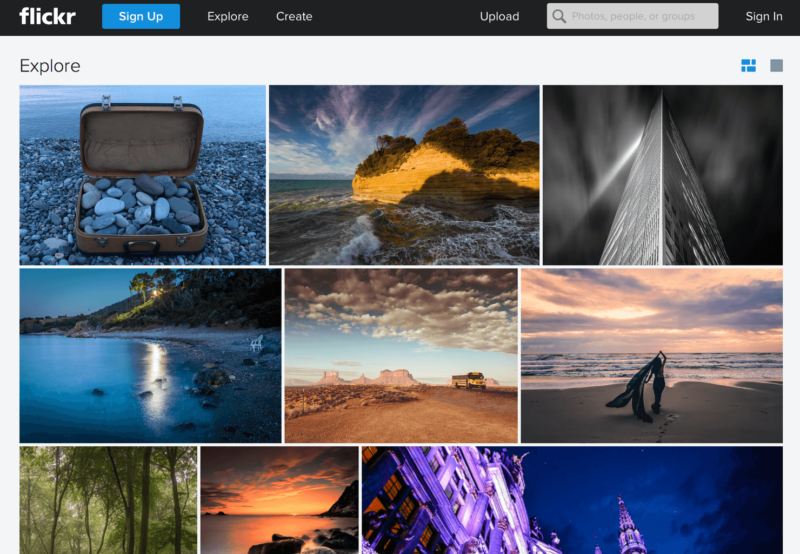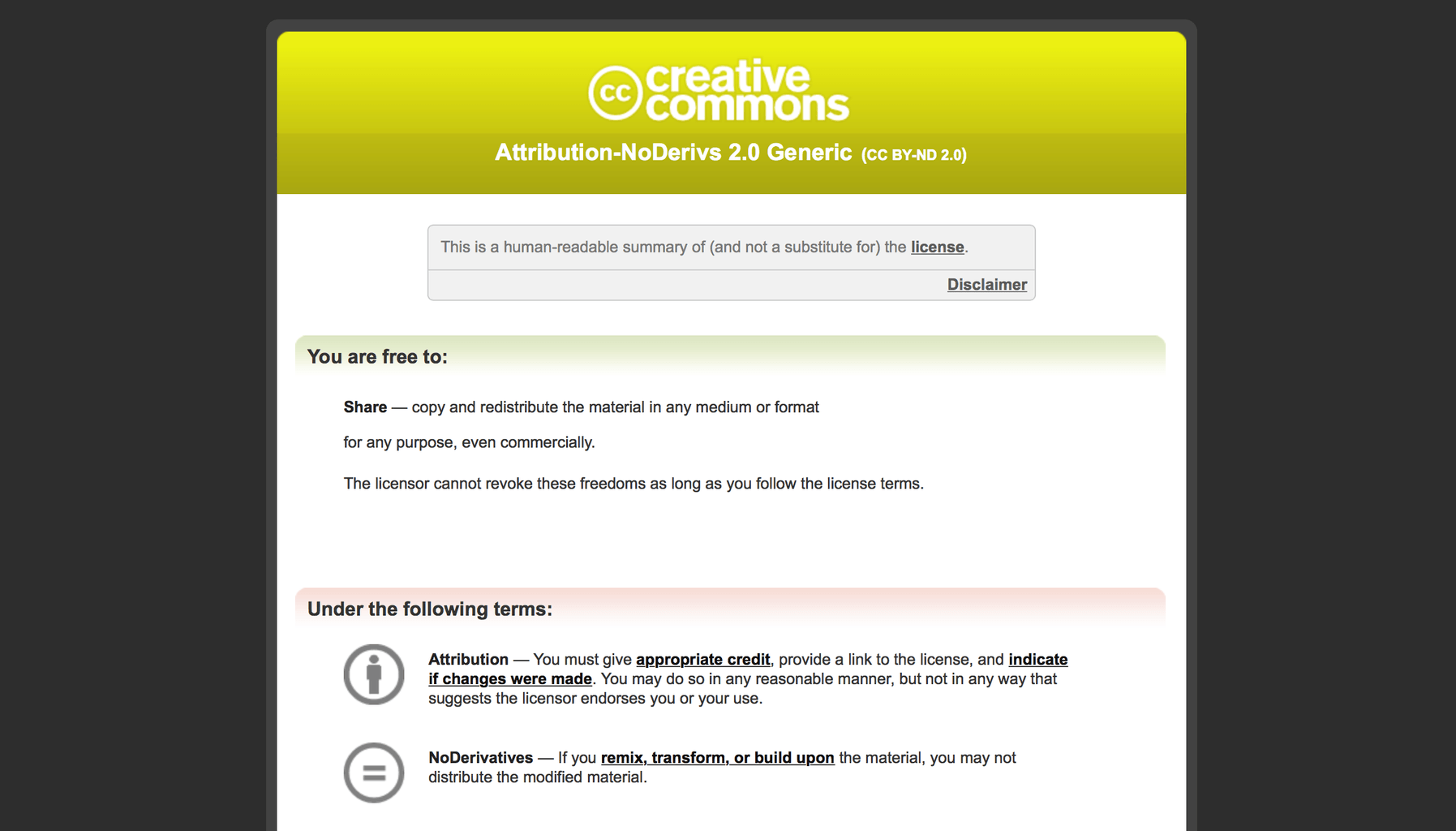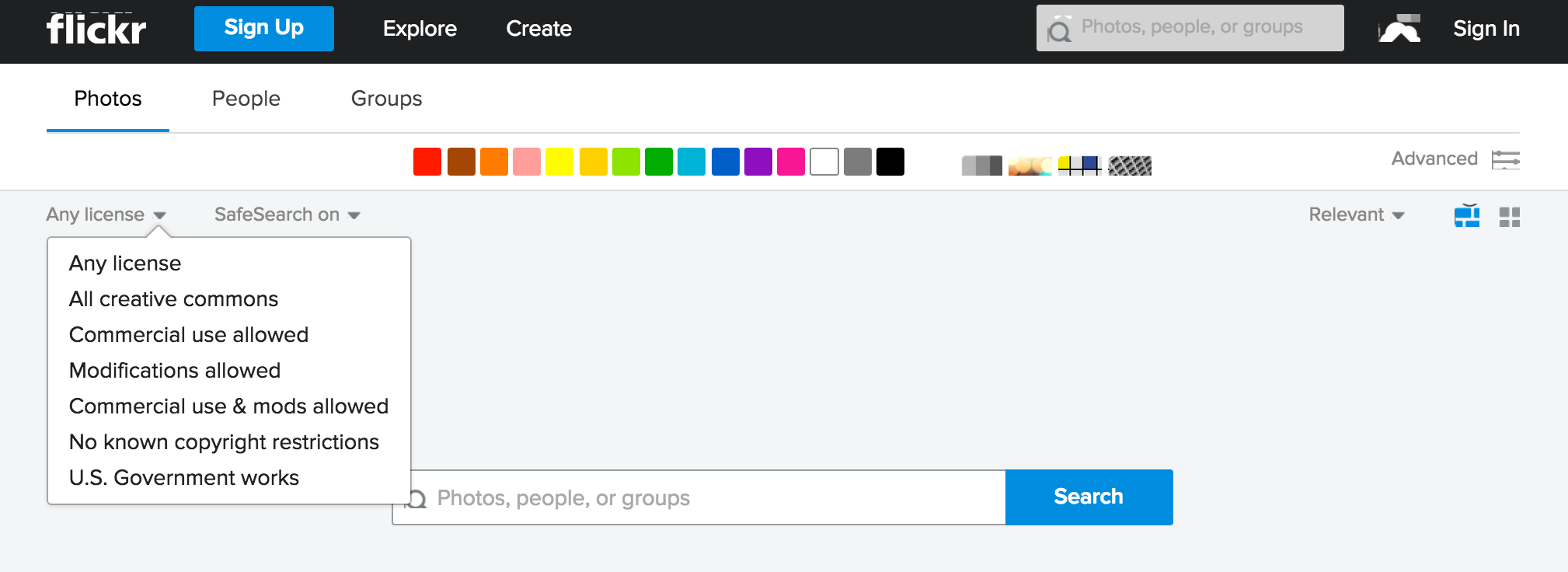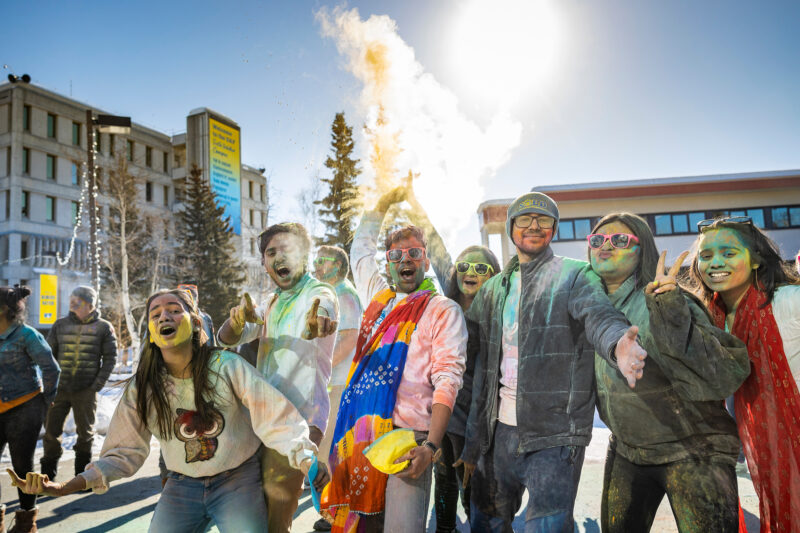The proliferation of digital devices has made all of us photographers, but that doesn’t mean we always have an image for a report, article or ad in our own library. Flickr is one of the largest repositories of user generated photographic content, and many of these images are available for use with certain stipulations.
A Brief Explanation of Copyright
In the US, the moment you take a picture, you own the copyright for that image. In theory, no one can use that image without your explicit permission, but in practice, once that image has been thrown online, the likelihood of theft can be high depending on the quality of the image.
For companies, organizations and schools, assuming that you have the rights to use an image you find online can be an extremely expensive mistake. It’s one thing for a teen to steal and image and post it on Instagram, and another thing for a brand to steal an image to promote a product or service. Both instances are illegal, but the brand is more likely to get sued.
US Copyright Law offers up to $150,000 of statutory damages per infringement plus court costs. So when it comes to commercial use of images, you need to make sure you have permission.
Licensing an Image
When it comes to photos, you’re typically licensing the image rather than buying it. “Buying” means you’re obtaining a full-right buyout, inclusive of the copyright, and this is typically a very expensive proposition. Licensing prices (which can range from one to thousands of dollars), by contrast, are usually based on usage. The price for an internal Powerpoint presentation will be much lower than a worldwide print campaign.
When it comes to managing all your photo licenses, organizations often rely on digital asset management (DAM) systems to enter specifics on how and when an image can be used.
Model Releases
When people appear in an image, and you use that image for commercial purposes (as opposed to editorial/news purposes), you need to have a model release. In the US, the Right of Publicity allows individuals to control how their likeness is used for commercial purposes. A benefit of properly licensing an image through a known entity is that this type of legal documentation is often provided for you (although the liability is still usually in your court if the document is fake).
Creative Commons
Copyright law can be a messy concept to understand. So in 2001, the non-profit Creative Commons was founded to provide shrink-wrapped, easy-to-understand licensing bundles that adhered to Copyright law. Flickr allows photographers to assign a Creative Commons license to their photos.
For example, you might allow your photos to be shared and modified as long as an attribution is provided, and it’s not used for commercial purposes. The ethos is akin to the “open source” movement in software development, but for photos.
So I found a photo on Flickr
You found the perfect photo on Flickr, but how can you tell if you can use it.
View the image, and look in the lower right corner.
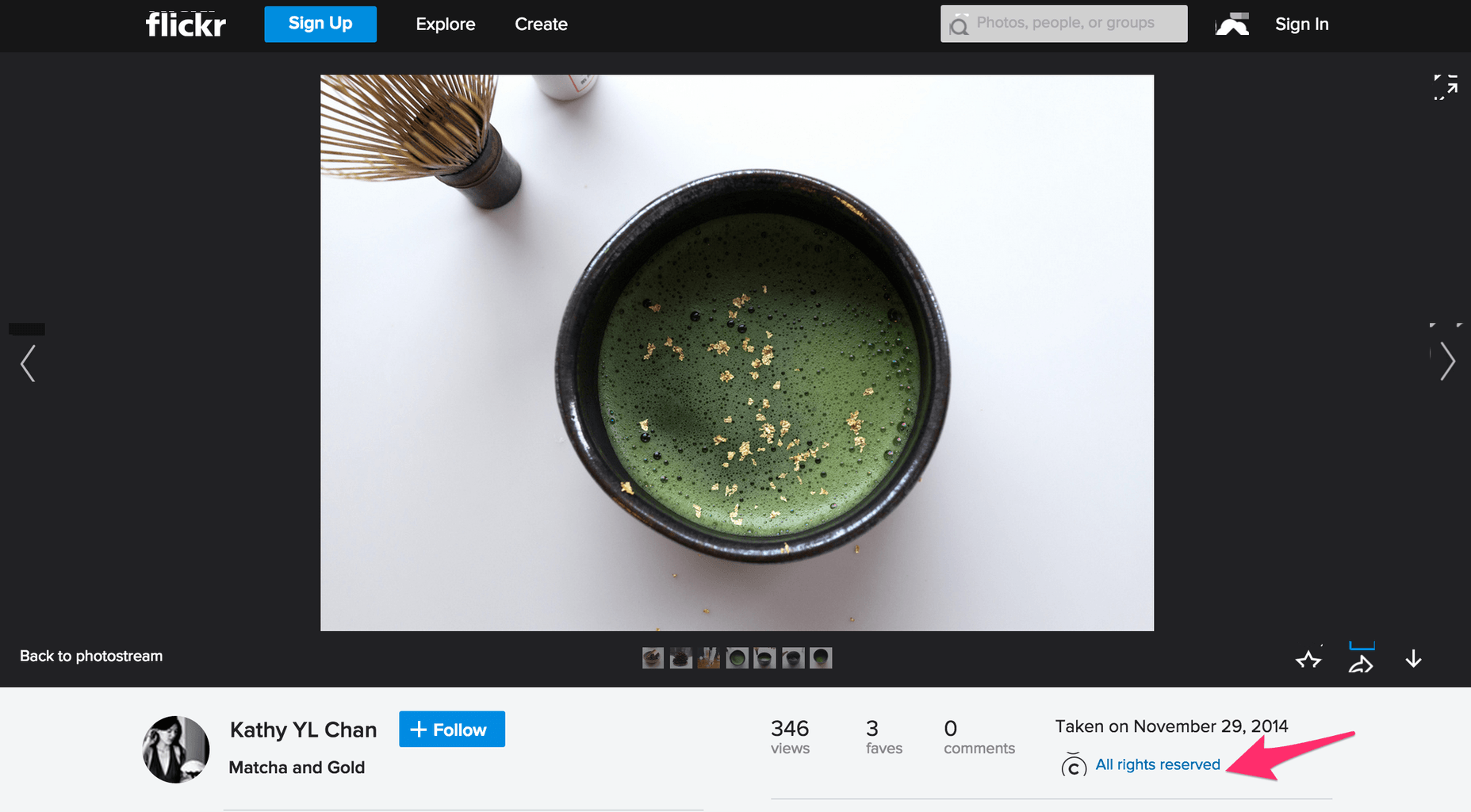
If you see a copyright symbol:
You’ll have to contact the owner to properly license the image. In many cases, the photographer will be happy to work with you. Professional photographers will rarely work for “exposure” and we don’t recommend approaching pros with anything but monetary compensation. The licensing fee will vary by usage, and you can get a range of licensing fees by using the pricing calculators on sites like Shutterstock or Getty Images. A proper license should articulate how an image can be used and for what duration.
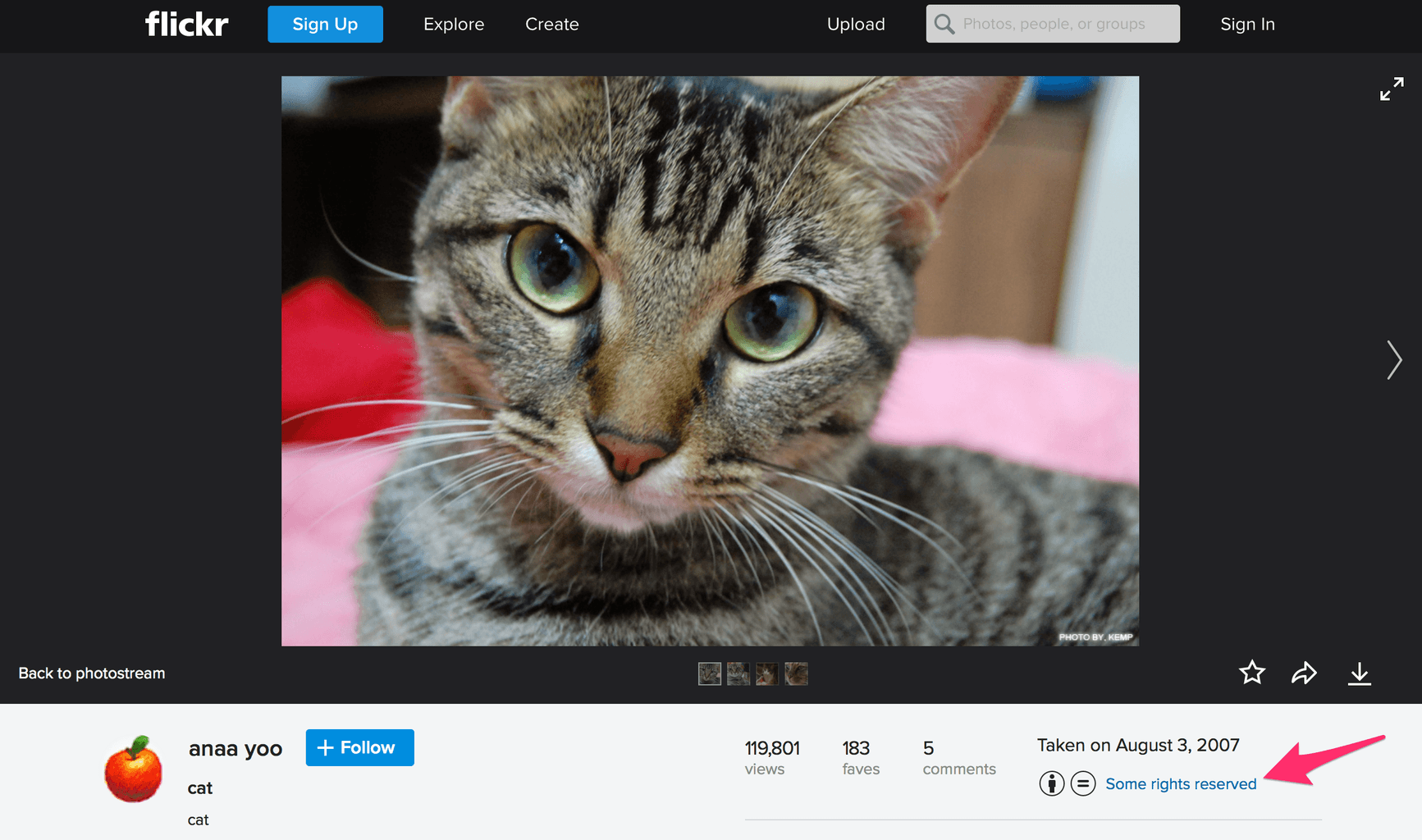
If you see a “Some Rights Reserved” annotation:
Click on the text to see the exact license.
The Creative Commons language is very easy to read and understand. Make sure you respect the terms of the license.
Alternately, you can use Flickr’s Advanced Search to only find Creative Commons images:
Whether you’re participate in the sharing economy, or are paying to license an image, respect the photographer’s intellectual property and make sure you are creating an accurate and proper paper trail. The alternative could be a very expensive way to learn about copyright law.
